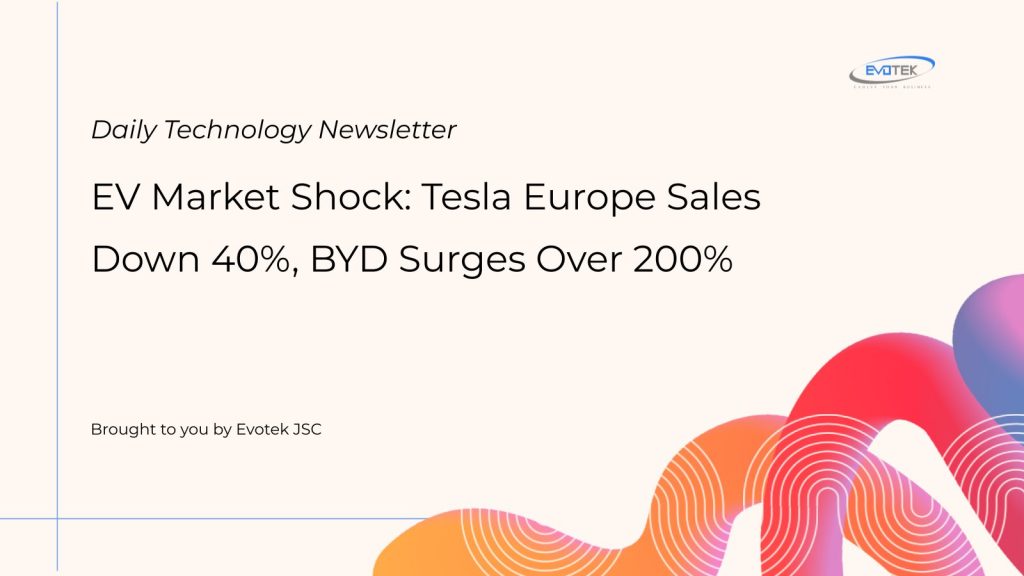European electric vehicle (EV) sales saw a dramatic shift in July, with Tesla experiencing a significant downturn while Chinese competitor BYD registered an astonishing surge. According to the European Automobile Manufacturers Association (ACEA), new registrations for Tesla vehicles in Europe plummeted by 40% year-on-year, totaling just 8,837 units. This marks the seventh consecutive month of declining sales for the Elon Musk-led automaker in the region.
In stark contrast, BYD’s European registrations soared by an impressive 225% annually, reaching 13,503 units during the same period, effectively surpassing Tesla’s volume. Notably, this slump for Tesla occurred despite an overall increase in battery electric car sales across Europe, as confirmed by ACEA data.
Tesla Faces Mounting Challenges in Europe
Tesla, under CEO Elon Musk, is grappling with a confluence of challenges in the highly competitive European automotive landscape. Industry observers point to intensifying rivalry, coupled with potential reputational damage stemming from Musk’s controversial public statements and political affiliations, as contributing factors. Globally, Tesla has faced headwinds, reporting a decrease in auto sales revenue in the second quarter. Musk himself has cautioned investors to prepare for “a few rough quarters.”
A key strategic issue highlighted is the absence of significant refreshes to its core vehicle lineup. While the company has announced plans for a more affordable EV model with “volume production” slated for late 2025, hoping to revitalize sales, current market dynamics are proving tough.
Thomas Besson, head of automobile sector research at Kepler Cheuvreux, offered his perspective on the situation. He noted that Tesla’s management often attempts to “convince investors that Tesla is not really a car company” by emphasizing advancements in artificial intelligence, robotics, and autonomous driving technology.
Besson elaborated, stating, “They talk about almost everything else but the car they’re selling at a slower pace now because effectively, the age of their vehicle is much higher than the competition and the latest products have not been as successful as hoped, notably the Cybertruck.” This sentiment underscores a perceived disconnect between investor focus and the immediate challenges in vehicle sales.
BYD Leads Chinese EV Invasion
Against this backdrop, U.S. automakers like Tesla are increasingly confronted by the formidable entry of Chinese electric vehicle manufacturers into the European market. These Asian challengers are aggressively launching new models and rapidly expanding their presence. BYD, in particular, has spearheaded this charge, strategically establishing showrooms across the continent and introducing competitively priced vehicles over the past two years.
This aggressive expansion has paid off, with Chinese brands collectively securing a record market share exceeding 5% in Europe during the first half of the year, according to recent data from JATO Dynamics.
The competitive pressure from Chinese automakers isn’t exclusive to Tesla. Several established automotive giants also reported year-on-year declines in European new car registrations for July, including Stellantis (owner of Jeep), South Korea’s Hyundai Group, and Japanese brands like Toyota and Suzuki. Conversely, some European mainstays such as Volkswagen, BMW, and Renault Group managed to achieve increases in their new car registrations during the same period, indicating a diverse and evolving automotive landscape in Europe.

 日本語
日本語 한국어
한국어 Tiếng Việt
Tiếng Việt 简体中文
简体中文